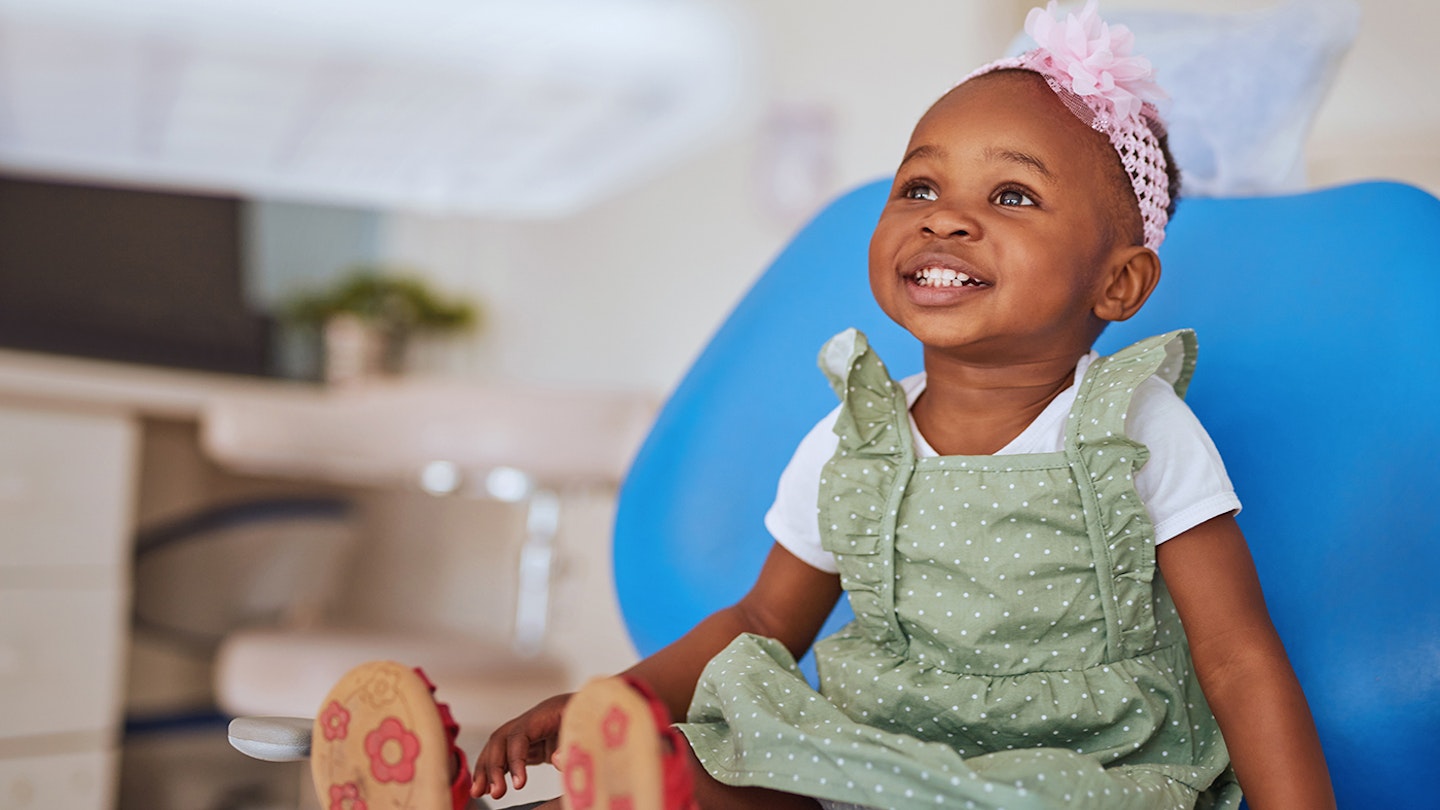While we’re all guilty of prioritising absolutely anything at all over a dreaded dentist check-up (gulp), appointments at your toddler’s age are really just about making sure everything’s progressing OK – and they give you a chance to ask any questions about looking after their teeth.
We find out why taking your baby to the dentist before the age of 1 is so important, plus expert tips on how to reassure and familiarise your toddler with the dentist’s chair so they know what to expect on D-day.
Baby teeth
You might not even be considering a trip to the dentist; perhaps your baby isn’t even teething yet. But with shocking NHS figures revealing that only 9.3% of children under 2 visited the dentist last year, there’s a renewed urgency to take our little ones on a trip to the dentist.
Dental appointments dried up in March 2020 which has obviously had a knock-on effect on the numbers of children accessing dental services. But now The British Society of Paediatric Dentistry want to make infant dental care a priority. So much so that the BSPD have implemented a campaign “DC by 1”, which stands for Dental Check by 1.
Medical professionals are warning parents that making infants’ oral health a priority is vital. Professor Claire Stevens CBE is spokesperson for The British Society of Paediatric Dentistry. She explains, “It’s important to take your baby to the dentist before their first birthday, for a number of reasons.”
You might be thinking a pre-12 month dental check is premature. But the experts insist this is how to safeguard children’s’ oral health and start them in good habits. Progessor Stevens adds, “This will be the first time that a dental professional has the chance to examine your baby’s mouth, gums and any teeth – so signs of any early issues may be picked up. It also helps your baby get used to the dentist surgery environment and having someone looking around in their mouth! This will help build their confidence with dental visits. It’s the best way to ensure your baby’s oral health gets off to a good start and they become accustomed to regular visits from an early age.”
While getting a dental appointment proved tricky during the 2020 and 2021 lockdowns, Professor Stevens reassures parents that isn’t the case now and they should be able to book their little ones in: “It has been disappointing to witness the detrimental effect of the COVID-19 pandemic on children accessing a dentist. However, there is a renewed focus and urgency for us now to get the message out there about the importance of infants seeing a dentist and now appointments for babies and children should be available as they were before the pandemic.”
As well as introducing children to the concept of visiting the surgery, dentists will be on the lookout to check teeth are growing properly and can also spot signs of tooth decay which we as parents aren’t as used to monitoring. And your child doesn’t need to have a mouthful of teeth in order to see a dentist. Professor Stevens tells us, “Even if your baby hasn’t got a tooth by their first birthday, it is still important to take them to the dentist, so they become familiar with the experience.”
As with plenty of things, your child takes their cue from you. So, by ensuring you aren’t building up a trip to the dentist as a big, scary moment, you are helping to prepare them. As Professor Stevens says, “I can’t overemphasise how important it is to make the concept of regular visits to the dentist a normal and pleasant experience for a child. This is the best way to ensure that prioritising their oral health becomes a habit for life. The sights and sounds of a dentist’s surgery can seem unfamiliar and clinical – so the earlier a baby is exposed to this in a positive way, the better. Their first visit might be to accompany you at a routine appointment. It is important that you are positive about your forthcoming visit so that your child does not become unduly anxious.”
Your toddler's first dental check
While you might be concerned your little one will be frightened or scream and cry in the dentists’ chair, there are things you can do as a parent to make things easier. First of all, not every child exhibits fear at the dentist’s surgery. Some children inquisitive and others are excited. If you toddler seems worried, they can lie back on Mummy or Daddy whilst their parent reclines in the dentist’s chair.
There are children’s story books focussed on trips to the dentist which explain what sights and sounds they might experience. It could be helpful to read something like this in the days leading up to the appointment. Also, give yourself a helping hand by trying to time the appointment right. As Professor Stevens says, “Be positive yourself and talk about the appointment as not a big deal. Good advice also includes timing the appointment to fit around feeding and naps so that your baby isn’t hungry and is rested before the appointment. It’s also fine to bring a soother or favourite teddy to hold!”
Scroll through the gallery below as Karen Coates, dental advisor for The British Dental Health Foundation recommends some tips and tricks to make the visit the best experience it can be:
dentist
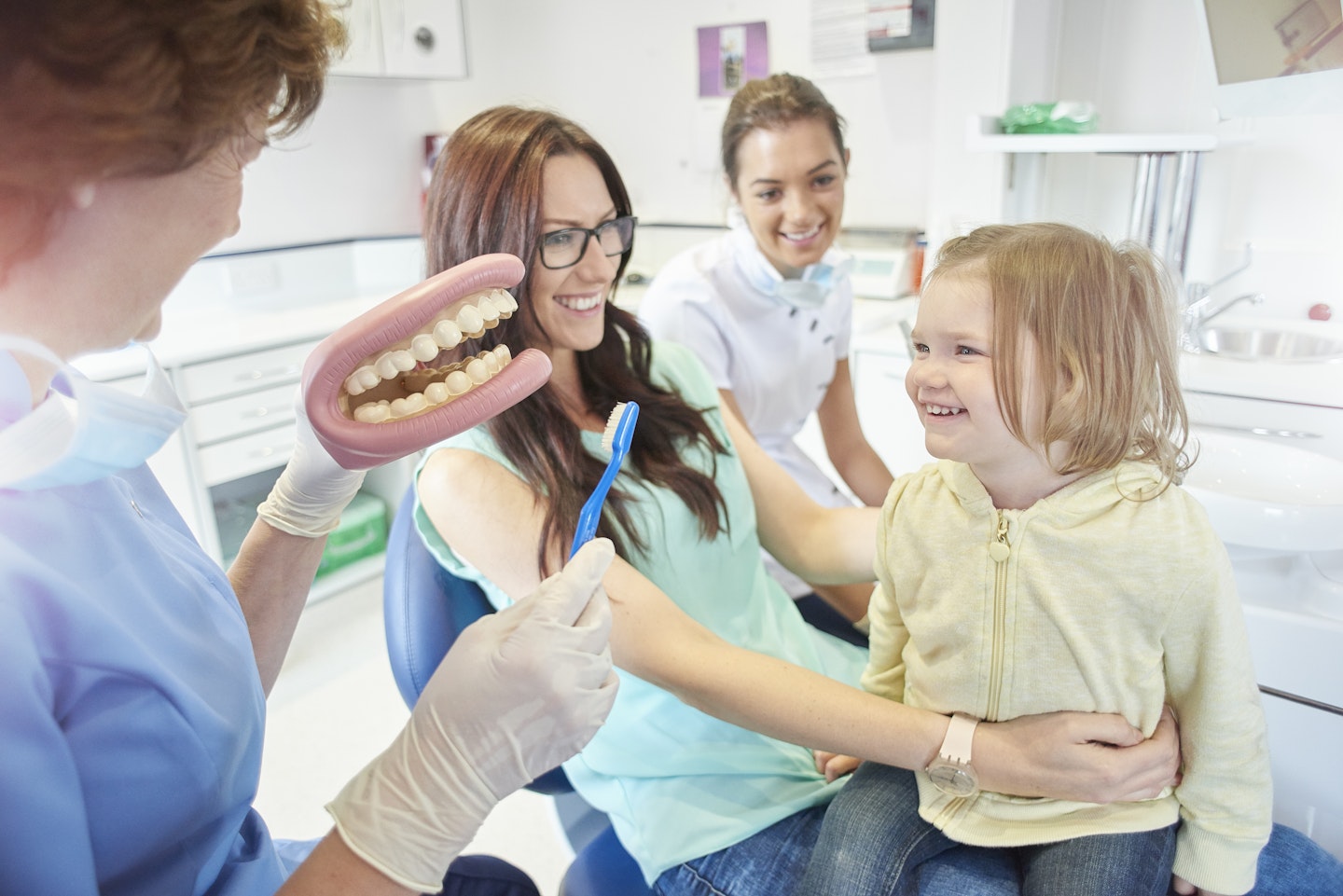 1 of 6
1 of 61) Take her with you
Bring your child to your own check-ups so she gets used to what happens – although maybe not if you’re in for a heavy-duty root canal.
"You don’t want to frighten her, but a general appointment can familiarise her with the sounds and smells," says Karen Coates, dental advisor for The British Dental Health Foundation.
 2 of 6
2 of 62) Get reading
Browse Amazon for books like Freddie Visits the Dentist (definitely not as sinister as it sounds…) to introduce the idea to your toddler.
"Most libraries also have titles about this using child friendly characters," says Karen.
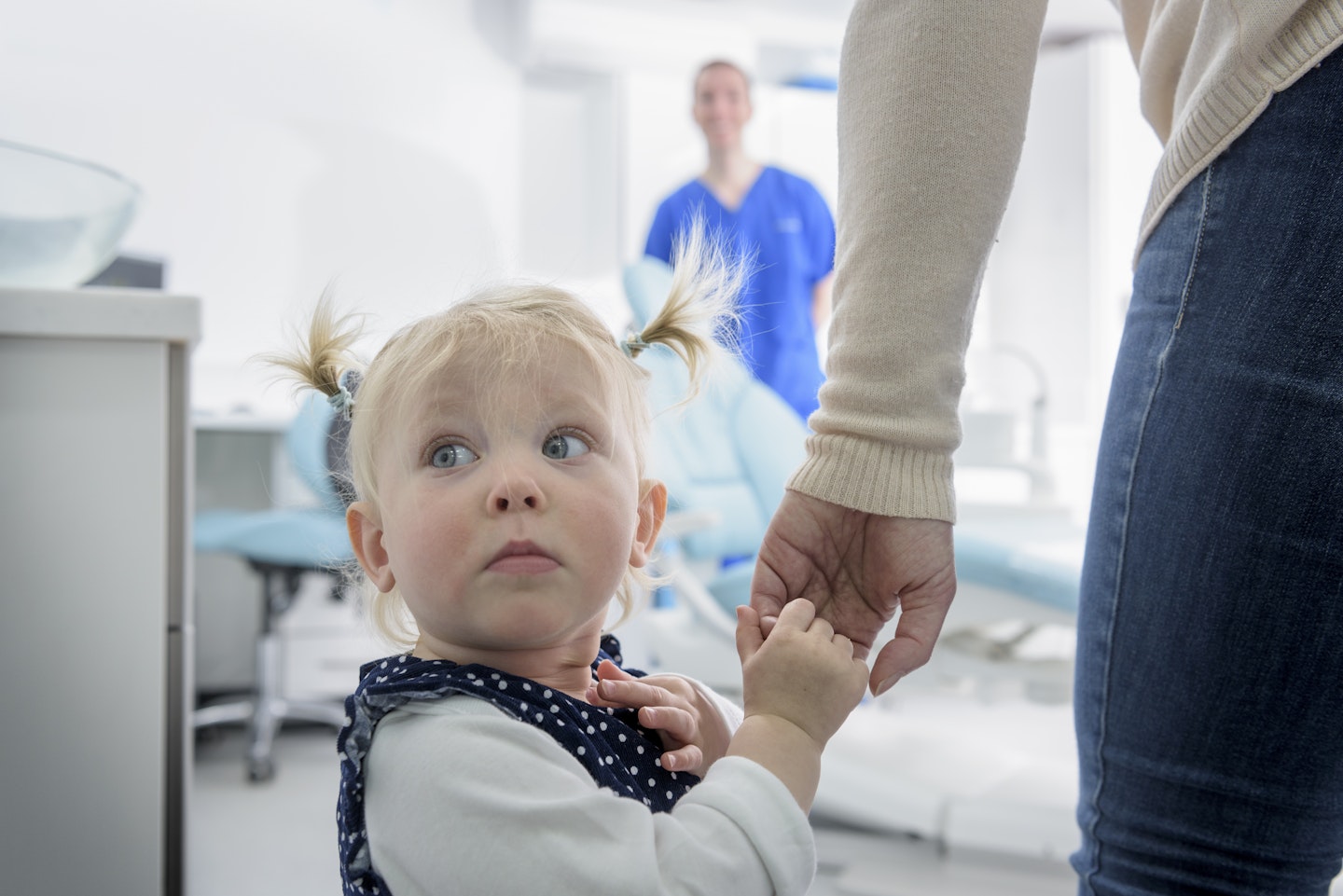 3 of 6
3 of 63) Book a tour
Phone the surgery and see if a dental assistant has time for you to come in with your toddler before his check-up.
See if a dental assistant has time for you to come in with your toddler
"They can show him things like the water spray and how the chair works, so nothing’s a surprise," says Karen.
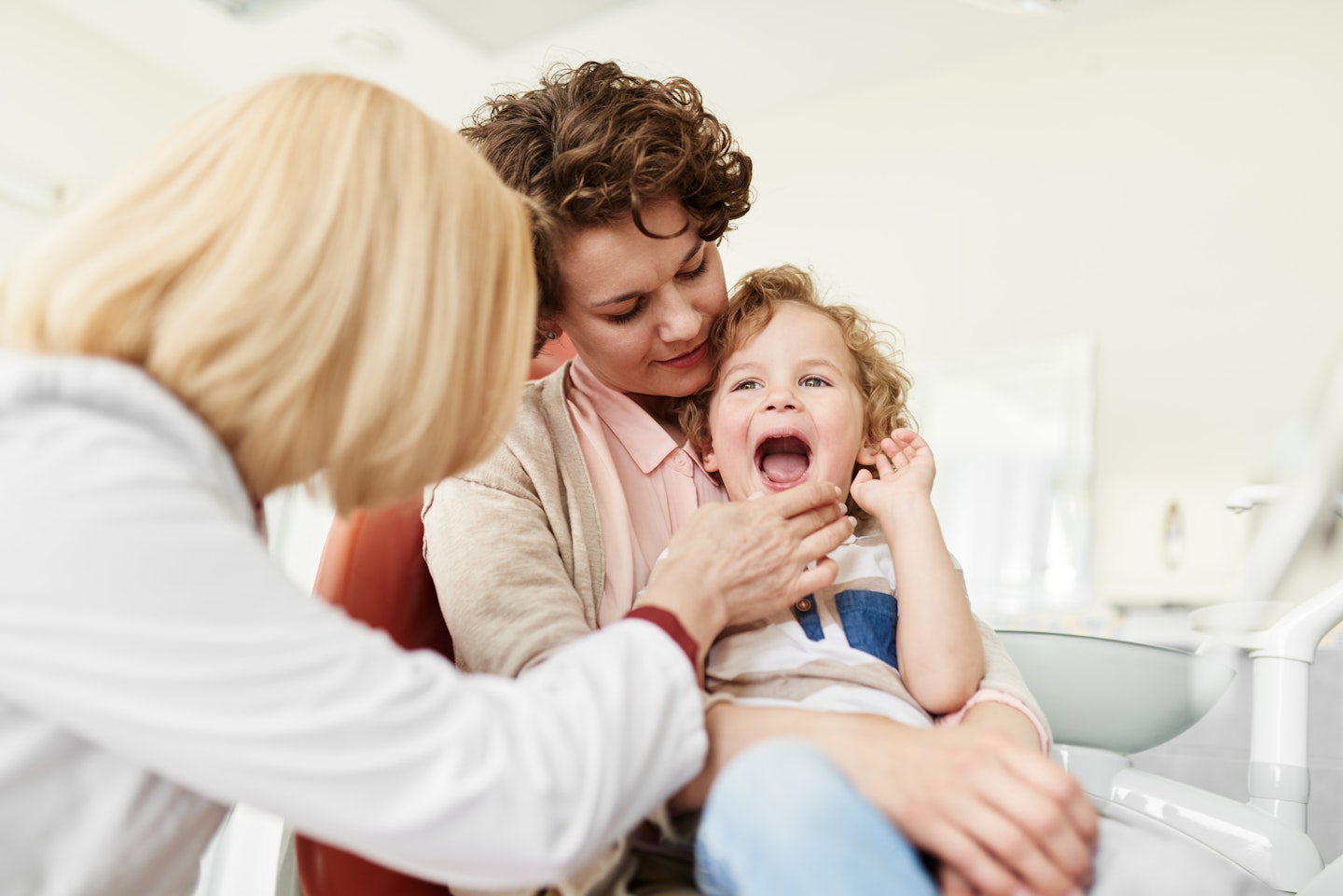 4 of 6
4 of 64) Make her comfortable
When the big day arrives, gauge how your toddler feels – so if she wants to sit on your lap in the chair, that’s totally fine.
"Most dentists will also let kids have a look in the mirror and things like that," explains Karen.
"At the end of the day, they want her to be as happy as possible."
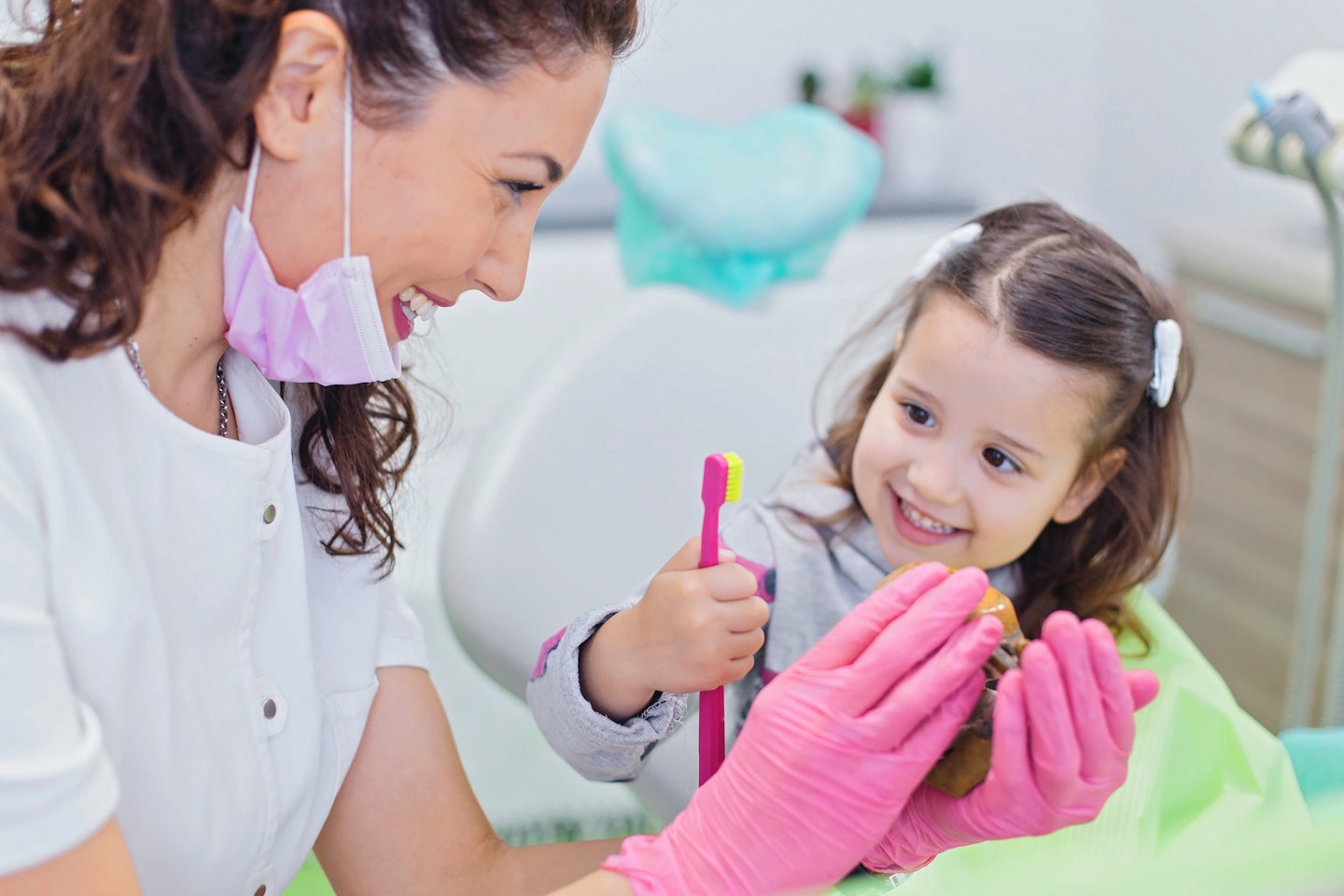 5 of 6
5 of 65) Use positive language
If your child’s having treatment, certain language may help her feel more relaxed.
"Realistically, most children know what injections are, but it may be good to call it “cream” or “liquid” and say something like it “makes your tooth go to sleep so we can get the bugs out”," suggests Karen.
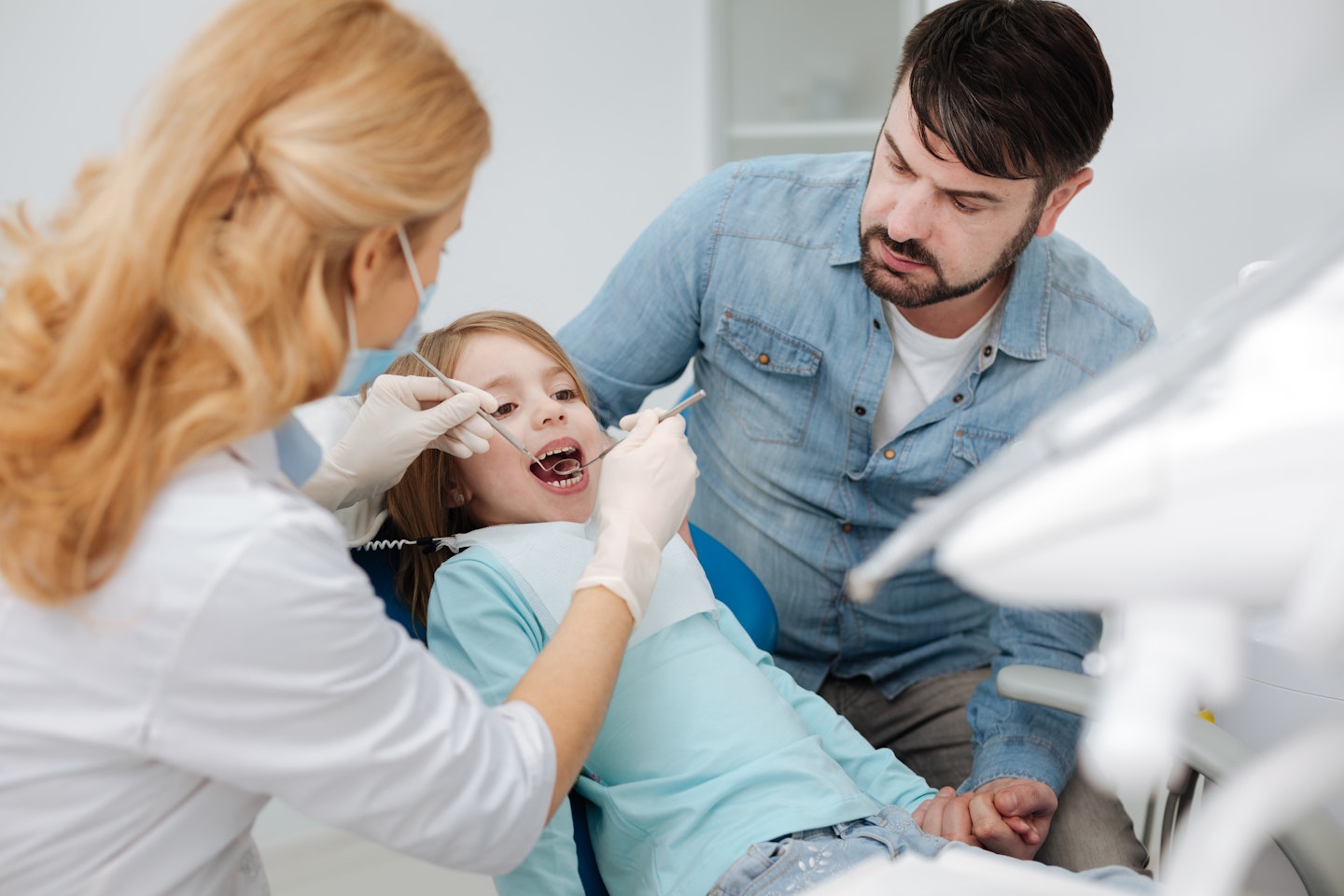 6 of 6
6 of 66) Change companion
If you feel flustered, your toddler may pick up on that.
"If you think it might be better for her to go with someone else, perhaps dad or another relative, then do consider that," says Karen.
Really struggling? It’s no problem to reschedule.
Read more popular articles
How dentists look after their tots’ teeth
